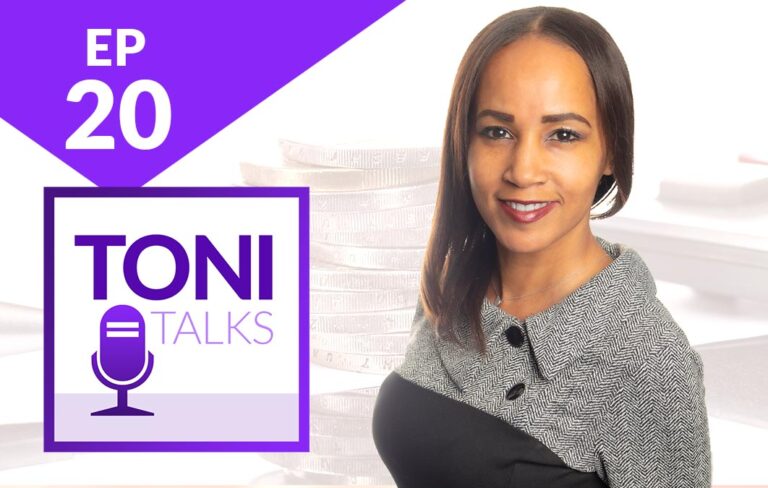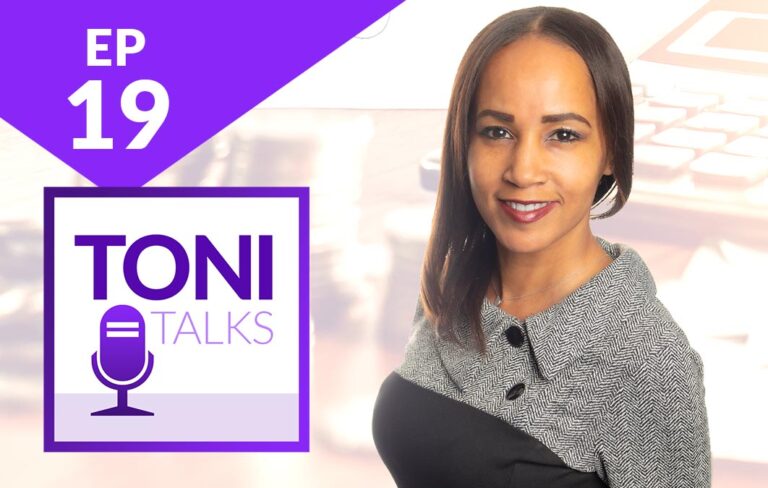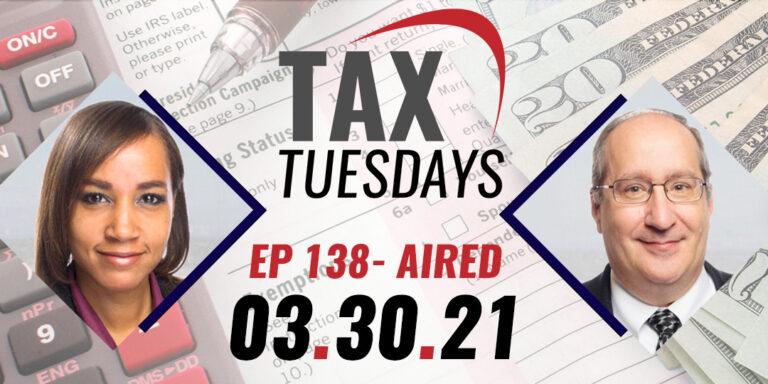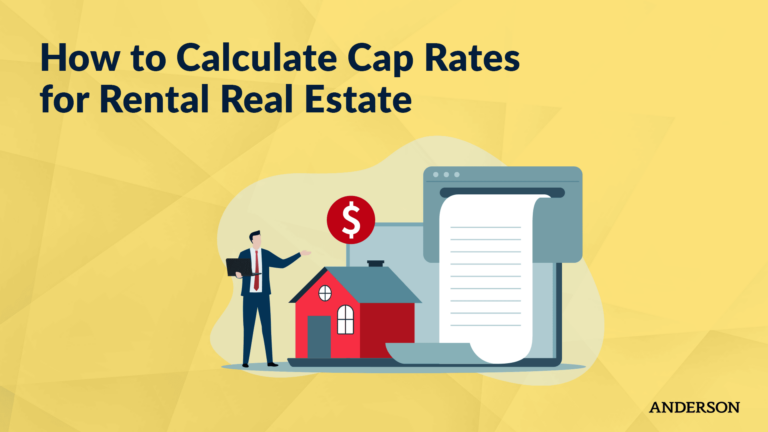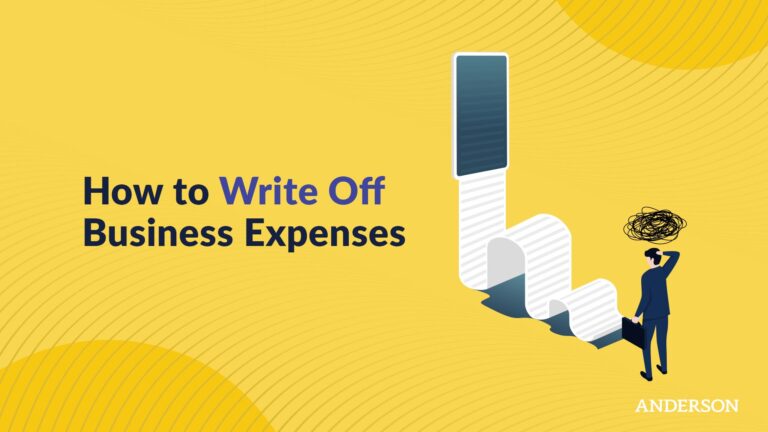What are the best practices for tax planning?
In this episode of Toni Talks, host Toni Covey Director Of Professional Services, covers everything you need to know about tax planning.
You’re either filing them, or you’re planning on filing them.
Tax planning is not how anyone wants to spend their Saturday, so let’s go over some best practices to help you minimize blood, sweat, and receipts before our mandatory national holiday.
When Is It Time For Planning?
Can you even plan when it’s last minute? What’s that random motivational quote, “those who fail to plan, plan to fail?”
Well, the not-fun answer is, we’re sitting here at the beginning of the year, and I would say now is when you start tax planning.
Tax planning is something you should be doing all year.
Now, I’m not saying that you’re supposed to be doing it every weekend or even every month, but maybe it’s something that you look at doing quarterly.
I know it sounds weird, but sincerely you want to sit down and talk to your tax professional so they can assess whether or not you’d benefit from quarterly tax planning, once a year, etc.
I have a personal theory that tax advisors suffer from loneliness since the majority of their interactions come from tax deadlines, and since no one likes being in a hurry, I can’t imagine them getting the best of humanity during those calls.
They say we’re defined by what we’re not, which begs the question: When is it NOT a good time to tax plan?
Well, not in December. I mean, you’re cutting it a hair close, and if your tax plan calls for you to set up another business entity and set up a retirement plan or things of that nature, those things take time.
And it’s not like you can go online and just hit the ground running and get it done. You’ll quickly be met with the classic government slogan, “it’s out of our hands.” The state decides how long they’re going to take to file, and we know they’ve got a waiting list.
And this all is for personal returns.
For instance, the C corporation is a separate taxpayer. Here you’d have to consider, am I taking a payroll from the corporation? What is my personal tax consequence, if any, related to the corporation?
So we have to look at the whole body of what it is that you’re doing to really give you an accurate answer.
What should you expect from tax planning, and what does a tax planning session look like?
Well, if it was at all intriguing before, it won’t be now.
Basically, you get your financials run so that you will know an estimate of your tax burden, or maybe the numbers get run, and it looks like you’re going to get a refund, and this is the heart of it.
To effectively run those numbers, tax planners need your year to date and your projections.
When we say year-to-date financials, we know that you’re not going to have the vast majority of your financials, given your individual tax return, right?
What we’re looking for then is what kind of income statements do you have? We might just look at the prior year and walk through that and go, okay, same old- same old. Usually, there isn’t much deviation year by year, but we’d want to plan for it if there is something major.
Perhaps you’ve already gotten some tax forms. If you have those available or at least know all the sources of income you have available, it’s not uncommon for me to do a discovery call with my clients.
There’s this other piece of income, or there’s this other thing that happened that just kind of comes out of the woodwork out of nowhere, glad we talked about it now- to get that out of the way.
It adds up from there, and the things that we’re saying here is why we want to start earlier, so we aren’t surprised at the last minute and have enough time to respond to these scenarios.
The discovery calls are always most useful as far as ahead as possible before tax time. We call them “By the way” calls.
You know, the random, “Oh, by the way, we have another C corporation, and it generates a million dollars a year in profit, does that change my plan?”
Yeah, it slipped my mind.
That’s why those meetings can be really important. Usually, you’re so in it you don’t think of the “new” things that have happened in your life.
Even if we’re not doing tax planning just yet, having the information upfront helps us create a better picture and advise you better along the way. So it’s very important, when it comes to tax planning, to arm yourself with as much information as you can.
Going Into Tax Planning? What Should You Get Out?
There are three basic concepts with tax planning. I typically look at income splitting or shifting, income deferral, and which I’m going to group with this last one: losses, deductions, and credits.
When we’re looking at your prior-year tax return and going through that first, I’m looking to see if you had any losses and adjustments to income. Next, I’m looking at your schedule-A. Did you itemize deductions or maximize deductions?
When I’m looking at your schedule A, and I see that you had a 10,000, that you were only allowed to take in state and local taxes, but you paid more than that- well, now I’m going to California.
Now, we’re going to look at it and say, okay, well do you have any business entities where you’re using a part of your home for business?
We can probably take some of those property taxes as a reimbursement from the business, and then I’m going to look at losses. Maybe you’re a schedule E, and I see that you have a ton of suspended losses that you’re not able to take advantage of.
Can you qualify as a real estate professional? Maybe.
If you’re over 50% of what we call your personal services work (basically your 40 hours a week), and in the real estate area, if you can meet all those, then it turns out that income as getting to it becomes an active loss which can offset other ordinary income practices or spouses of ordinary income, a very very strong tax technique.
So there are these things that we’re looking at to potentially do just on the personal tax return. We haven’t even gotten so much into the business entities quite yet. But that’s what I’m looking at for losses, deductions, credits, refundable, and nonrefundable credits.
I think it’s important to say that like the money that you’re feeding into that corporation doesn’t just evaporate into nothing. The goal is to get that money still back to you but in a way through planning that’s going to come to you in a better tax-advantaged way.
We always aim to make that LLC a partnership where we’re going to put 20% of the ownership to the LLC and through the corporation 80% to you.
When you’re doing real estate or when you’re trading, or many other types of business activities, you can use that corporation, be it C or S, as your income splitting kind of tool or income shifting.
A quick mention for another common scenario is when we’re paying the children from, say a corporation, typically they’re going to be in a lower tax bracket. Consider the methods of paying them and ways it could be done through a corporation.
Often, if it’s going to be through the C corporation, you make payments through a 1099 or a W2, and we will incur, or at least within your family unit of money, you’re going to incur employment taxes.
There’s another method where you could pay the children out of a C corporation and haven’t paid through a sole proprietorship LLC on your personal tax return. You basically are leasing the children to your C corporation, so there’s an exchange for that, their wages.
If I am looking to defer income, I’m talking about a retirement plan of some sort, whether it be an individual account, an IRA, or a qualified plan, like a solo 401k or a profit-sharing plan.
So if I am generating earned income, I’m able to contribute to the plan, and keeping in mind that that contribution is simply deferred, when you go and take the money out of the retirement plan, it will be taxable to you.
Unless, of course, it’s a Roth, and in which case, you wouldn’t have received a deduction for it in the first place. But if you’re looking for deductions right now, that’s the plan, a traditional IRA or the traditional buckets in your profit sharing and your solo.
That is one of the only types of tax planning tools that you can use after the close of the tax year, which brings me to a very important closing point that I want to make.
Now is the best time of year to do tax planning, the beginning of the year. It is not after the year has closed. You want to do the tax planning kicking off the new year.
The Takeaway
Overall, the key takeaway here is that if you want to maximize your taxes and successfully plan for the future, there is no better time than now to start planning.
Well, I want to thank you all for joining us. I hope you found this helpful.
If you’d like to discuss your real estate structures or any investment questions you may have in greater detail, I encourage you to schedule a complimentary Strategy Session today. On the call, you and the Advisor will discuss your current investing methods and future goals, then build out a custom entity structure to lower your tax liability and streamline your business.
You can schedule online or by calling 888.871.8535.
Free Strategy Session with an Anderson Advisor
Receive a detailed risk assessment to assist in lowering problem areas that could wipe out all of your assets with one wrong move. Speak with an Anderson Professional Advisor to get your FREE Strategy Session. Limited-Time offer: FREE (a $750 value.)
